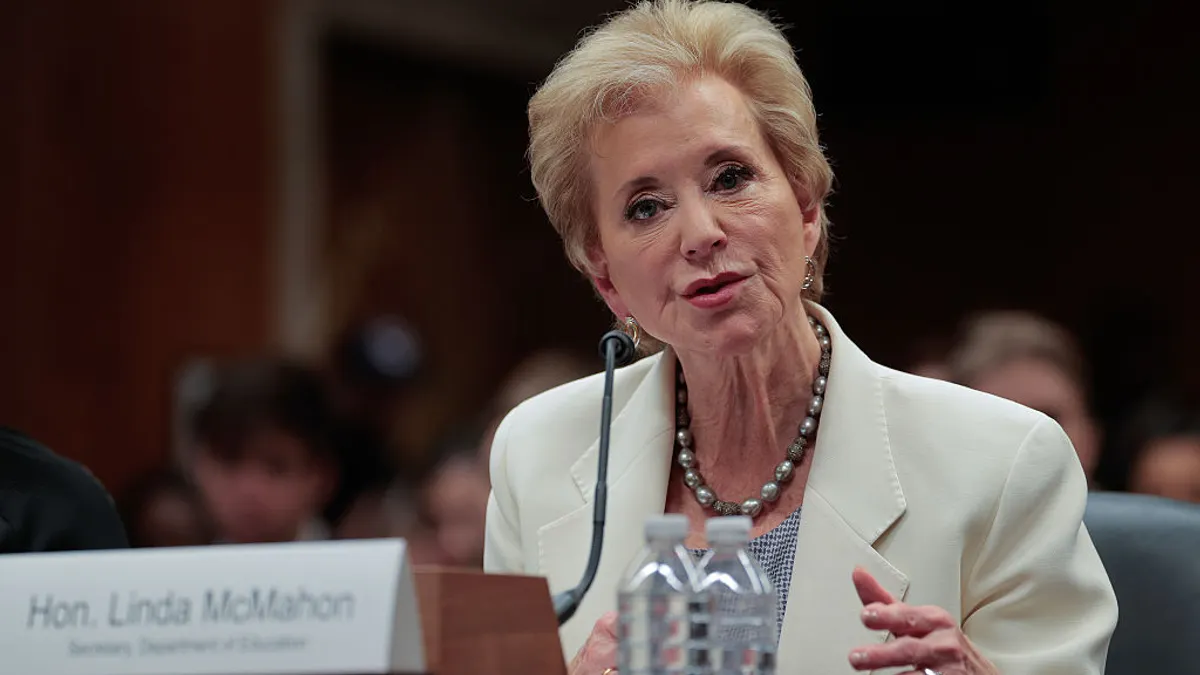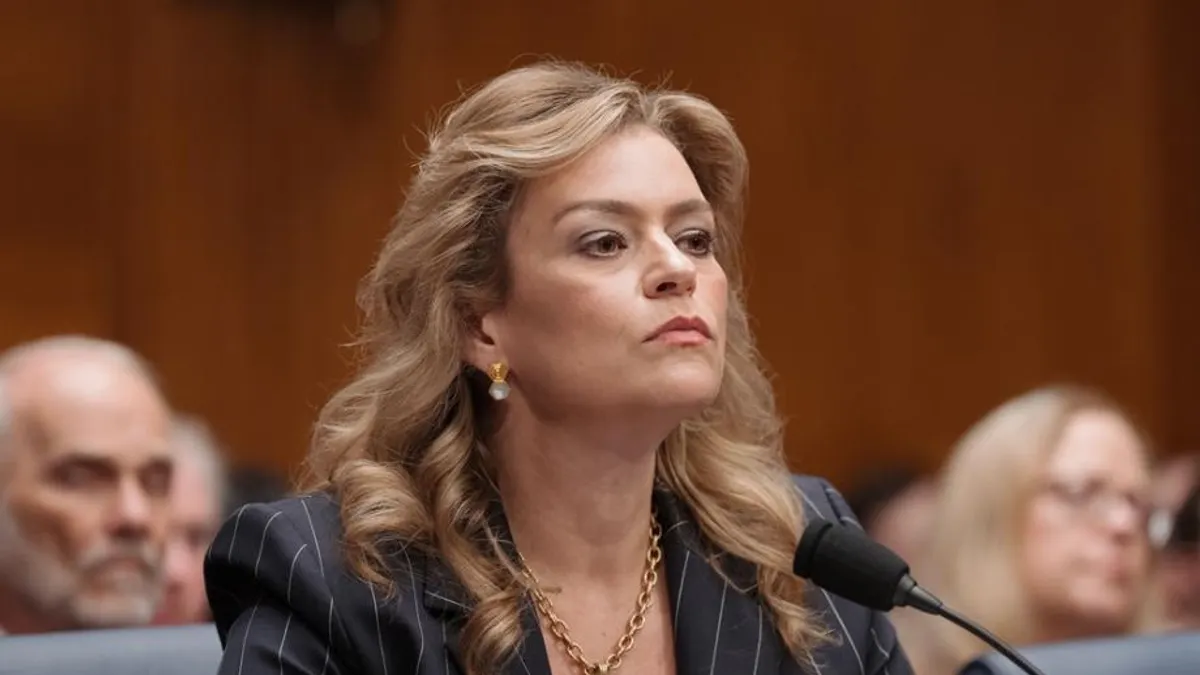Republican-sponsored legislation that would only allow students in K-12 and higher education to play on sports teams that match their biological genders cleared its first hurdle, passing by a 219-203 vote along party lines in the U.S. House Thursday morning.
The one-page "Protection of Women and Girls in Sports Act of 2023" seeks to ensure that compliance with Title IX — the 50-year-old federal civil rights law that prohibits sex-based discrimination — seeks to recognize that a student’s sex is based on reproductive biology and genetics at birth. Specifically, it would bar federally funded school and college athletic programs from allowing transgender women or girls to join women’s or girls’ sports teams.
The bill has several more steps before becoming law. In the Senate, a companion bill — S. 613 — had 26 Republican co-sponsors as of Wednesday and has been referred to the Health, Education, Labor and Pensions Committee.
President Joe Biden would veto the measure if it reaches his desk, the Office of Management and Budget warned this week in a statement. "Politicians should not dictate a one-size-fits-all requirement that forces coaches to remove kids from their teams," the OMB statement said.
Lawmakers supportive of the House bill, H.R. 734, said allowing transgender students to play on sports teams designated for women creates an unfair competitive environment for girls and women athletes.
"If men can compete in women's sports, should they be able to take roster spots from women? Rob women of hard-earned achievements?" asked Virginia Foxx, R-N.C., chair of the House Education and Workforce Committee, speaking on the House floor Wednesday as the debate began.
"We are not sensationalizing this problem. It exists. Females are being hurt by it, and action must be taken to stop that," Foxx said.
Rep. Nancy Mace, R-S.C., introduced an amendment to require a study on the "adverse psychological, developmental, participatory, and sociological" results to girls when men are allowed to compete on women's teams. Such adverse results include hostile environments and sexual assaults, according to Mace's amendment. The amendment passed 216-205, on a mostly partisan vote.
Mace, who was the first woman to graduate from the Corps of Cadets at The Citadel, said she is supportive of people who identify as LGBTQ. "I don't care how you dress. I don't care what pronoun you take. I don't care if you change your gender. But we ought to protect biological women and girls in their athletics and their achievements," Mace said.
Democratic lawmakers who urged colleagues to reject the bill, however, countered that it would be discriminatory and dangerous.
"This bill fuels a virulent hate campaign against kids who just want to play with their friends," said Rep. Pramila Jayapal, D-Wash., who nicknamed the legislation the "Cancel Kids Trans Hate" bill.
Jayapal questioned how the measure would be enforced. "How do you verify a girl's, quote, reproductive anatomy? If a young girl, if your daughter, doesn't look feminine enough, is she subject to examination? This is absolutely absurd."
Several liberal lawmakers noted the high levels of harassment and attempted suicide transgender students experience. They also pointed out that several girls' and women's rights organizations oppose H.R. 734. Others said they were frustrated that Congress was even debating the issue, and that they would prefer to have discussions about keeping students safe from gun violence and improving academic outcomes.
But sentiment — and action — on this issue is increasing.
Some 21 states have laws banning transgender students from playing on sports teams that match their gender identity, according to a tracker from Movement Advancement Project. A bill to prohibit transgender women from playing on college-level women's teams advanced in the Alabama House of Representatives Tuesday on a 83-5 vote. The state already has a policy banning K-12 transgender athletes.
A proposed rule issued by the U.S. Department of Education on April 6 would prohibit a universal ban on including transgender students on sports teams. But it would allow districts and states to use certain grade-level and competition considerations to limit athletic participation of transgender students.
For example, the proposal states that elementary school students should be included on sports teams because the focus of participation at that age range is teamwork, fitness and basic skills. But as students get older and sports competition intensifies, schools may be able to limit eligibility as long as schools minimize harms to transgender students as much as possible.
Comments on those proposed rules are due May 15. As of Thursday, about 4,700 comments had been submitted, according to a federal government website.
Members of the Education and Workforce Committee marked up H.R. 734 in early March, along with H.R. 5, the Parents Bill of Rights. That parents rights legislation passed the full House on a 213-208 vote on March 24. The vote mainly fell along party lines.
























